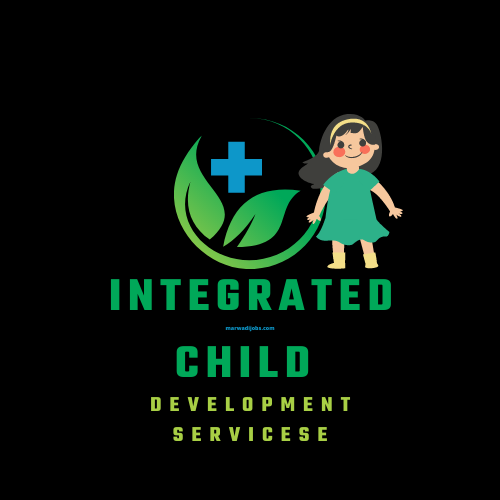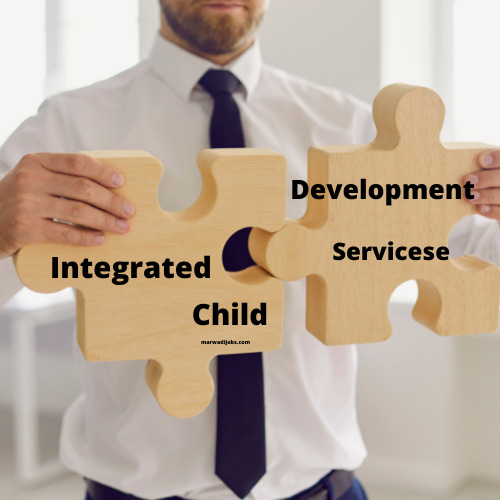Integrated Child Development Services
The Integrated Child Development Service (ICDS) program, which provides supplemental nutrition, immunizations, and early childhood education for children, is a popular government program. Launched on October 2, 1975, the Integrated Child Development Services (ICDS) program. Is one of the flagship programs of the Government of India and one of the largest. And most unique early childhood care and development programs in the world. The Integrated Child Development Services (ICDS) program is the largest maternal and child health. And nutrition program not only in India but worldwide. The Comprehensive Child Development Services Program aims to achieve all-round. Child development and improve the nutrition and health status of a vulnerable group. Of children under the age of 5, pregnant and breastfeeding mothers.
Integrated Child Development Services
Launched in 1975, the Integrated Child Development Program (ICDS) is a unique early. Childhood development program that addresses the malnutrition, health, and even developmental needs of young children, pregnant and lactating women. The Integrated Child Development Services (ICDS) program aims to provide nutritional supplements. Immunizations, health screenings, and early childhood education for children under the age of six. Launched in India in 1975, the Integrated Child Development Services (ICDS) program is one of the world’s largest flagship programs. To improve early childhood care and development through a range of health, nutrition and early education services.
Main goal of Integrated Child Development Services
The main goal of Integrated Child Development Services is to improve the nutritional status and health of children under 6 years of age, pregnant women, nursing mothers and adolescent girls, and to reduce IMR and health. Nadu status. The program provides six services, such as supplementary nutrition, immunization, health screening, referral services, nutrition and health education, and early childhood education for children aged 6 months to 6 years, pregnant women and nursing mothers. The package of services provided by ICDS includes complementary nutrition, early childhood education, vaccinations, health screening, nutrition and health education and referral services for children aged 0-6, adolescent girls, pregnant women and nursing mothers.
Objective of Integrated Child Development Services
Improve the nutritional and health status of children aged 0 to 6. lay the foundations for the correct psychological, physical and social development of the child. Reduce mortality, morbidity, malnutrition and school dropout. Ensure effective coordination of policy and its implementation between departments to promote the development of children; To improve the mother’s ability to care for the child’s normal health and nutritional needs through proper nutrition and health education. Providing health and nutrition information and education to mothers of young children to improve the educational skills of children of mothers in India. To create the basis for the correct mental, physical and social development of children in the country.
Coordinate policy development and implementation activities among all departments of various ministries involved in various government programs and schemes aimed at the development of children in India. Establish a separate section of the ICDS mission budget to provide flexibility and integration in the areas of child development and nutrition, as well as synergies with the broader determinants of maternal and child malnutrition.
The objective of the ICDS mission is to have three main outcomes
The objectives of the ICDS mission will be to achieve three main outcomes, namely) prevent and reduce child malnutrition (% of underweight children aged 0-3 years) by 10 percentage points) improve early development and learning outcomes for all children aged 0-6. and improve care and nutrition for girls and women and reduce the prevalence of anemia among young children, girls and women by one-fifth.
The ICDS was designed to promote the all-round development of children under 6 by building the capacity of caregivers and communities with better access to essential community-based services. The program was started in 1975 and focuses on the holistic development of children and the empowerment of mothers. The program was launched in 1975 as part of the National Children’s Policy.
Objectives of the Early Childhood Early Childhood Education Program
The benefits of implementing “Early Start” include improving the social and emotional development of children from the age of two. The Early Childhood Early Childhood Education Program aims to create a learning environment to promote the child’s social, emotional, cognitive, physical and aesthetic development. Primarily for disadvantaged children, this pre-school educational program aims to create and provide a natural, joyful and stimulating environment with a focus on the facilities need.
Benefits of Implementing “Early Start”
The benefits of implementing “Early Start” include improving the social and emotional development of children from the age of two. The Early Childhood Early Childhood Education Program aims to create a learning environment to promote the child’s social. Emotional, cognitive, physical and aesthetic development. Primarily for disadvantaged children, this pre-school educational program aims to create and provide a natural. Joyful and stimulating environment with a focus on the facilities needed for optimal growth and development.

The Early Childhood Early Childhood Education program
The Early Childhood Early Childhood Education program provides a holistic approach to integrating essential services. With the help of Anganwady workers and caregivers in the community. Community support/women’s groups, Anganwady center, health system and community. It is the largest national program in the world dedicated to the long-term nutrition. And holistic development of children through the provision of a range of. Services on a single platform known as Anganwadi (or Child Care Centres) (hereinafter AWC). It is one of the most ambitious and comprehensive child survival and development programs to improve the health. Nutrition and learning opportunities for preschool children and their mothers while providing all necessary services at the village level.
Benefits available under this scheme
Opportunities for early and joyful learning for children ages 3 to 6. Other support services such as safe drinking water, environmental sanitation, women’s empowerment programs, non-formal education. ICDS promotes child survival and development through an integrated approach of integrating essential services to improve child care. Stimulation and early learning, improve enrollment and retention, health and nutrition, water and environmental health. The ICDS scheme was initiated based on an understanding of the relationship between intellectual. Emotional and social development as well as child health and nutritional sustainability. Aims and Objectives of the ICDS System To improve the nutritional and health status of children aged 0-6 years. Lay the foundations for the correct psychological, physical and social development of the child.
The mission is to report to the Council of Prime Ministers at the national level. And the CM Council at the state level on nutrition, child development, including early learning, etc. The State Child Development Society will be established at the state level. With the authority to create its own district division. State Society for Child Development. If these programs are parent-child focused, reaffirming and supporting parents in their role. They can also improve parent-child relationships and the healthy development of children through physical, cognitive, social and behavioral development.
